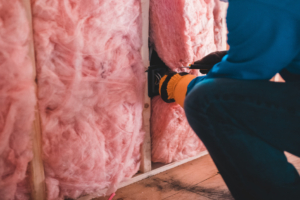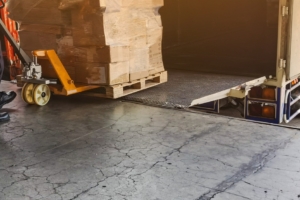4 Must-Know Cleaners To Use Cautiously in Small Spaces

While chemical cleaners are highly effective, they also come with risks, especially when used improperly in confined areas. Understanding the must-know cleaners you should use cautiously in small spaces guarantees a safe and healthy cleaning experience.
Bleach
Bleach is a powerful go-to cleaner for tackling mold, bacteria, and tough stains. Its versatility makes it a common product for disinfecting surfaces and killing germs.
However, bleach releases strong fumes that can irritate the eyes, skin, and lungs, particularly in poorly ventilated spaces. Keep doors and windows open when possible, and wear gloves and a mask to protect you. After cleaning, air out the space for several hours to release the fumes.
There are also considerations about where and when you can use bleach, like if you can safely use bleach in a porta pottyat one of your backyard events.Stop and take a moment to investigate if you are using other chemicals. Bleach can react with many other chemicals to produce hazardous combinations that can do serious long-term damage. Look into whether your cleaners can mix safely to avoid injury or hospitalization.
Ammonia-Based Cleaners
Ammonia is a common ingredient in glass cleaners and multi-surface sprays thanks to its ability to leave streak-free finishes. It’s highly effective at removing grime and residue.
However, ammonia’s fumes can irritate the throat, nose, and lungs when used in enclosed areas. Additionally, do not mix ammonia-based cleaners with bleach; it creates a chloramine gas. If you feel lightheaded, are coughing, or have shortness of breath, stop cleaning immediately and get some fresh air. Use ammonia-based cleaners sparingly and only in areas with airflow to minimize exposure to these potent fumes.
Acidic Cleaners
Acidic cleaners, like toilet bowl cleaners, excel at breaking down limescale, rust, and other mineral deposits. Their targeted action makes them indispensable for certain cleaning tasks.
That said, these products emit corrosive fumes in tight spaces and pose hazards to the respiratory system. Also, do not mix acidic cleaners with bleach, as the combination makes dangerous chlorine gas.
Symptoms of exposure to this gas include runny eyes and noses and a burning sensation in the chest. Always read labels carefully and use protective gear, such as gloves and masks, to keep yourself safe.
Solvent-Based Cleaners
Solvent-based cleaners, often used to dissolve grease or oils, play a vital role in kitchens and industrial settings. They are powerful in breaking down residue.
However, these products release volatile organic compounds (VOCs) that can cause dizziness or headaches when inhaled, especially in poorly ventilated spaces. Additionally, they pose fire risks if near ignition sources. When possible, choose water-based or less toxic alternatives and store solvents carefully.
When cleaning tight areas, prioritize safety. Protect yourself by guaranteeing adequate ventilation, wearing protective gloves and masks, and following instructions on product labels. Familiarize yourself with these must-know cleaners to use cautiously in small spaces, dangerous chemical combinations, and the signs you need to get fresh air. Keep yourself safe and enjoy a clean home.





